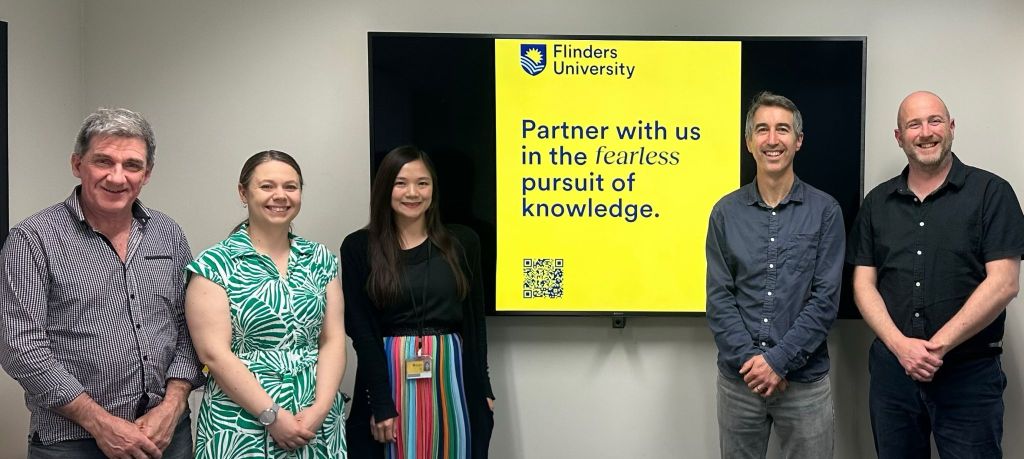
Development of novel circulating tumour DNA-based assays to improve treatment decision-making in prostate and breast cancer
Campus Plus is pleased to announce the commencement of an Australian Government Department of Education National Industry PhD Project, which brings together Flinders University and GNOMIX Pty Ltd. This collaborative effort brings together academic expertise with industry insights to drive innovation and create real-world impact.
The project, titled “Development of novel circulating tumour DNA-based assays to improve treatment decision-making in prostate and breast cancer,” aims to develop new non-invasive assays, based on measuring circulating tumour DNA in blood, that can identify alterations to genes with critical roles in these common cancers. By identifying such alterations, the assays will enable patient-specific prediction of response to therapy as well as real-time tumour profiling to guide treatment decision-making.

In this collaboration, Associate Professor Luke Selth of Flinders University provides the expertise in prostate and breast cancer biology and how specific genomic alterations influence response to therapy, while Scott Grist from GNOMIX brings expertise in genetic technologies and translation of research into clinically relevant assays.
From GNOMIX’s perspective, this project holds exciting potential to transform outcomes for patients with prostate and breast cancer by enabling real-time tumour profiling. Identifying the emergence of resistance mutations in the tumour DNA earlier will help guide treatment decision-making, significantly improving treatment outcomes and the quality of life for these patients.
Industry Researcher Rachel Hall is keen to commence the project stating: “I’m very grateful to have the opportunity to commence a PhD as an Industry Researcher through the National Industry PhD Program. This is a fantastic initiative that brings together industry and research and makes undertaking a PhD possible for industry professionals”.
From the University’s perspective, this collaboration fosters high-quality research, which will advance the state of knowledge and demonstrate the tangible societal benefits their research provides.
Thank you to Nilla Wen for facilitating this project.